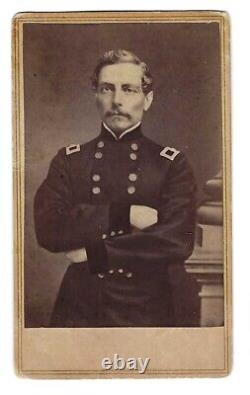
- Homepage
- Conflict
- Format
- Albumen (4)
- Ambrotype (35)
- Cabinet Card (68)
- Cdv (5)
- Crayon Portrait (2)
- Daguerreotype (27)
- Hardcover (14)
- Multi-formats (6)
- Negative Photo Image (4)
- Photograph (6)
- Ruby Ambrotype (3)
- Sixth Plate (2)
- Small (2)
- Stereoview (3)
- Tin Type (8)
- Tin Type Photo (2)
- Tintype (168)
- Tintype Photograph (6)
- Unknown (9)
- ... (6730)
- Photo Type
- Album (13)
- Albumen (15)
- Ambrotype (201)
- Cabinet Photo (67)
- Cdv (484)
- Cdv & Tintype (6)
- Cdvs (3)
- Cdvs & Tintypes (7)
- Daguerreotype (84)
- Gelatin Silver (13)
- Mixed (3)
- Negative (10)
- Negative Photo (4)
- Opalotype (4)
- Other (4)
- Photograph (4)
- Stereoview (23)
- Tintype (536)
- Tintypes (3)
- Unknown (12)
- ... (5608)
- Subject
- Children & Infants (21)
- Civil War (31)
- Civil War Soldier (12)
- Ethnic (17)
- Family (25)
- Fashion & Costumes (10)
- Figures & Portraits (149)
- Genealogy (10)
- Historic & Vintage (90)
- History (24)
- Men (59)
- Men, Civil War (58)
- Men, Military (39)
- Military (98)
- Military & Political (587)
- Military & War (14)
- Portrait (15)
- Portraits (14)
- Soldier (12)
- Women (19)
- ... (5800)
- Theme
- Americana (42)
- Americana, Fashion (18)
- Americana, Militaria (18)
- Antique (8)
- Art (7)
- Civil War (14)
- Conflicts & Wars (7)
- Fashion (19)
- History (44)
- History, Militaria (10)
- Love (6)
- Militaria (1066)
- Patriotic (7)
- People (21)
- Politics (15)
- Portrait (69)
- Portrait, Man (22)
- Stamps (28)
- Travel (6)
- Victorian (7)
- ... (5670)
- Type
- Belt Buckle (3)
- Carte De Visite (2)
- Cdv (3)
- Cdv Photograph (15)
- Daguerreotype (3)
- Full Cdv Photo Album (2)
- Illustrated Book (3)
- Negative Film Photo (4)
- Pendant (3)
- Photo Album (3)
- Photo Frame (2)
- Photograph (1385)
- Photograph Album (54)
- Picture Book (8)
- Picture Frames (8)
- Print (3)
- Real Photo (rppc) (10)
- Tintype (9)
- Tintype Photo (4)
- ... (5580)
Civil War CDV Confederate General PGT Beauregard




Toggle Early life and education subsection. Toggle Early military career subsection. Toggle American Civil War subsection. Toggle Civil rights advocacy subsection. This is a good article. From Wikipedia, the free encyclopedia. Portrait by Mathew Brady, c.
Little Black Frenchman[1]Little FrenchmanLittle NapoleonLittle CreoleBoryFelixHero of Fort Sumter. February 20, 1893 (aged 74). Tomb of the Army of Tennessee, Metairie Cemetery, New Orleans, Louisiana, U. First Battle of Bull Run. First Battle of Charleston Harbor.
First Battle of Fort Wagner. Second Battle of Fort Wagner.
Second Battle of Charleston Harbor. Second Battle of Fort Sumter. Henry Beauregard Laure BeauregardRené Beauregard. Pierre Gustave Toutant-Beauregard (May 28, 1818 - February 20, 1893), of Louisiana Creole descent, was the Confederate General who started the American Civil War at the battle of Fort Sumter on April 12, 1861. Today, he is commonly referred to as P. Beauregard, but he rarely used his first name as an adult. He signed correspondence as G. Trained in military and civil engineering at the United States Military Academy, West Point, Beauregard served with distinction as an engineer officer in the Mexican-American War.Following a brief appointment as superintendent of the U. Military Academy in 1861, and after Louisiana seceded, he resigned from the United States Army and became the first brigadier general in the Confederate States Army. He commanded the defenses of Charleston, South Carolina, at the start of the Civil War at Fort Sumter on April 12, 1861.
Three months later he helped win the First Battle of Bull Run near Manassas, Virginia. Beauregard held several key commands in the Western Theater, including control of armies at the Battle of Shiloh in Tennessee, and the Siege of Corinth in northern Mississippi, both in 1862.
He is most known for his defense of the industrial city of Petersburg, Virginia, from Union troops in June 1864, which delayed the eventual fall of the Confederate capital of Richmond, Virginia in April 1865. His influence over Confederate strategy was lessened by his poor professional relationships with President Jefferson Davis and other senior generals and officials. In April 1865, Beauregard and his commander, General Joseph E. Johnston, convinced Davis and the remaining cabinet members that the war needed to end. Johnston surrendered most of the remaining armies of the Confederacy, including Beauregard and his men, to Major General William Tecumseh Sherman.
